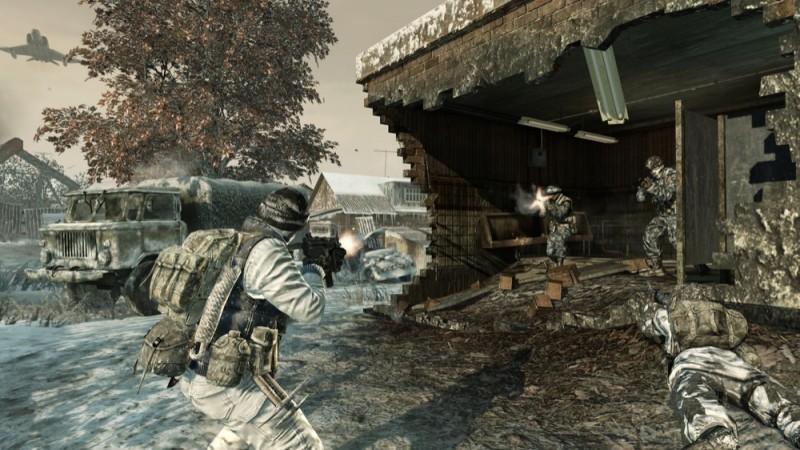Activision Wary of Call of Duty Going the Way of Guitar Hero

Activision is flying high with all things Call of Duty, but fellow Activision property Guitar Hero also once had a seemingly limitless future before it flamed out. How is Activision responding to this potential trap?
An internal Activision memo from back in February obtained by Giant Bomb from CEO Eric Hirshberg shows that he and the company is aware of what can happen to even the biggest of franchises like Call of Duty. "Isn't Call of Duty today just like Guitar Hero was a few years back?" asks the memo to itself. "This is a great question," answers Hirshberg, "and one we have thought about a lot. But there are several key differences between the two franchises worth considering. Guitar Hero quickly reached incredible heights, but then began a steady decline. Call of Duty, on the other hand, has steadily grown every single year of its seven-year existence."
To Hirshberg, the key in sustaining the Call of Duty is simple: Quality. "...We need to focus: on making games that constantly raise the quality bar; on staying ahead of the innovation curve; on surrounding the brand with a suite of services and an online community that makes our fans never want to leave. Entertainment franchises with staying power are rare. But Call of Duty shows all of the signs of being able to be one of them. It’s up to us."
Beyond that, Hirshberg says that there other factors that currently help the Call of Duty brand. He believes the fact that the series is an FPS and the online community are factors that help make the franchise "perhaps the 'stickiest' of all time."
While time will indeed tell whether Call of Duty really is here to stay, fans should be heartened by the fact that Hirshberg's memo appears to show a company that knows that making good games is the win-win scenario for everyone that will ensure any series' continued success. Then again, consistent quality is no easy task, and that's made even harder the more games you put out for a franchise.

Get the Game Informer Print Edition!
Explore your favorite games in premium print format, delivered to your door.
- 10 issues per year
- Only $4.80 per issue
- Full digital magazine archive access
- Since 1991









